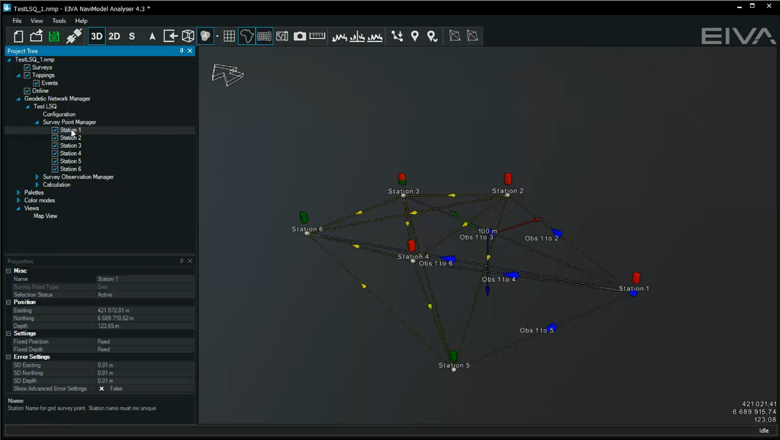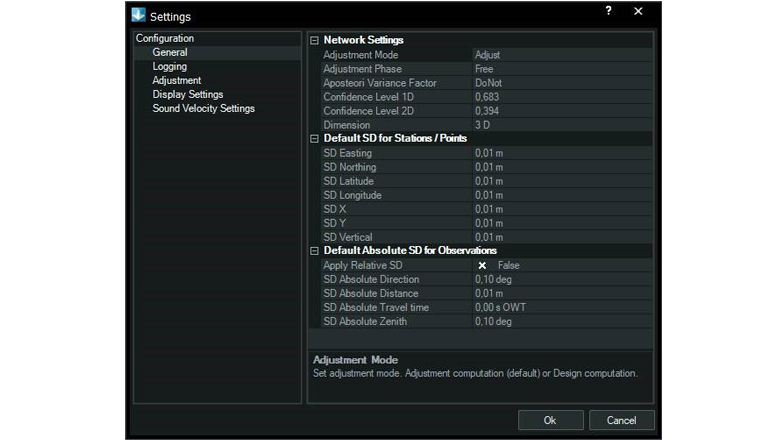
To use this site, please enable javascript

To use this site, please enable javascript
As part of providing our customers with quality control tools, we have implemented a new group of functionalities for the verification of station networks such as Long Base Line (LBL).
The LBL network adjustment tool allows you to view and verify the confidence levels for each station position based on the acoustic observations made between stations, and can be used in several scenarios:
The LBL network adjustment tool is available from within NaviModel, the EIVA NaviSuite software product for data processing, cleaning, modelling and reporting, where both configuration and visualisation of results and statistical reports are made.
NaviModel’s flexibility enables multiple data sources to be combined within a single software package. Due to this, enhanced interpretation and visualisation are possible when we view the resultant LBL network alongside seabed topography (DTMs), 3D engineering models of subsea structures, pipelines, events etc.

LBL network consisting of 6 stations, along with the acoustic observations between individual stations displayed within NaviModel
The LBL network adjustment tool is highly configurable, allowing the user to: select and modify the confidence level criteria of each station, keep or fix specific stations or observations, indication of error ellipses, apply ranges as one-way travel time (OWT) or two-way travel time (TWT), apply sound velocity to ranges, and select different calculation methods (1D, 2D or 3D, where the 3D method is default for acoustic LBL networks).
The feature list is quite extensive, constituting analysis, design and reporting functions. Pictured below are some of these features:

List of features
The LBL network adjustment functionality is implemented through the use of the network adjustment libraries from MOVE3, so that the calculations offered can be treated as independent and from a recognised source. The mathematics behind geodetic network adjustments is effectively a least square adjustment – combining the mathematical model: y = Ax + e + a
where
where
The network adjustment algorithm computes the optimal LBL solution given the specific station observations and settings:

User-defined station settings

Station confidence levels
The LBL network adjustment tool can also utilise existing Sonardyne LBL Fusion databases to independently verify or recalculate LBL networks, with an automatic report generated at the end of the verification process.

Statistical report example